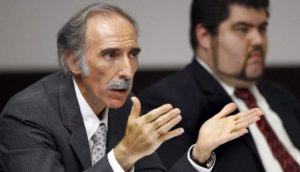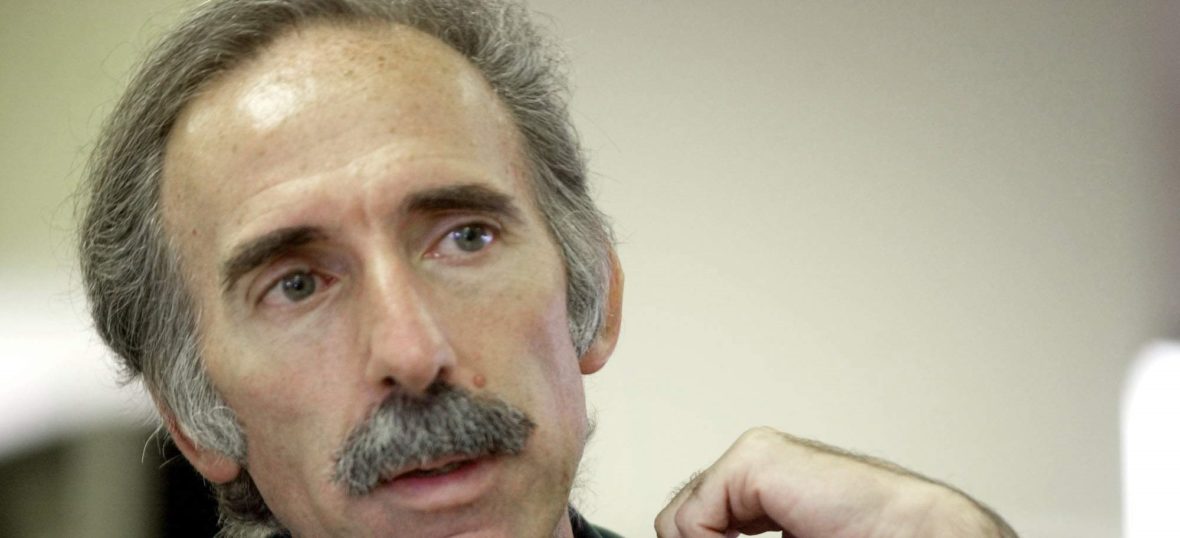Paul Alec Bilzerian is an American corporate takeover specialist of Armenian descent. Convicted of securities and tax laws violations relating to unsuccessful takeover attempts of various companies in the 1980s, Bilzerian served a prison sentence and was also ordered to disgorge his profits, leading him to bankruptcy and protracted disputes with the Securities and Exchange Commission. Take a look below for 28 more weird and interesting facts about Paul Bilzerian.
1. Bilzerian has spent the past 28 years maintaining that he is factually and legally innocent.
2. One of Bilzerian’s first business deals was an investment in a Tampa Bay-area radio station, WPLP, which he made with two Army colleagues from the Vietnam War who had experience in the broadcasting industry.
3. In 1984, he moved to Sacrament, California, where his father-in-law and another business associate lived.
4. While in Sacramento, in 1985, Bilzerian embarked on his first two high-profile takeover attempts, one of New York clothing manufacturer Cluett Peabody and Company, and the other of Pittsburgh construction company H. H. Robertson.

5. Bilzerian moved back to Florida in 1985. That July, he and fellow investors William and Earle I. Mack launched a takeover bid against the Hammermill Paper Company, purchasing about 3.3 million Hammermill shares at an average price of roughly $47 per share, and then offering $900 million to purchase the remainder of the company.
6. Bilzerian’s offer was ultimately rejected when Hammermill sold out to International Paper instead at $64.50 per share, but Bilzerian and his fellow investors still made a profit of nearly $60 million from the deal.
7. In 1985, Bilzerian began would would ultimately be a successful takeover attempt against the Singer Corporation, a defense electronics manufacturer.
8. In October, 1987, it came to light through SEC mandated disclosures that a group of investors led by Bilzerian had purchased 2.1 million Singer shares in the preceding two months.
9. Bilzerian was born in Miami, Florida, but grew up in Worcester, Massachusetts.
10. He’s an Armenian American.
11. His father, a civil servant, and his mother later divorced, leading to troubled teenage years for Bilzerian. He would later describe himself as a “juvenile delinquent.”

12. Called into the principal’s office of his high school one day in 1968 for violating the dress code by wearing blue jeans, Bilzerian impulsively responded by dropping out of school.
13. After serving in the Vietnam War and earning a Vietnamese Gallantry Cross, Bronze Star Medal and Army Commendation Medal, he turned his life around, earning a Bachelor of Arts with honors from Stanford University in 1975. Bilzerian entered Harvard Business School that same year.
14. After his graduation, Bilzerian married Stanford classmate Terri Steffen in 1978, and moved with her to St. Petersburg, Florida.
15. Bilzerian has two sons, Adam and Dan Bilzerian. Adam attended Gaither High School, where he represented his school in tennis. Angered by the government’s treatment of his father, he abandoned his dream of becoming a Army Green Beret.
16. Both Adam and Dan went on to careers as professional poker players. Norman Chad nicknamed them the “Flying Bilzerian Brothers” for their performance in the 2009 World Series of Poker.
17. In June, 2014, a Bloomberg News report incorrectly stated that Bilzerian had become one of the licensed service providers who processed applications for the same Saint Kitts and Nevis citizenship-by-investment program which his son had used.

18. Bilzerian’s high profile takeover attempts led to SEC scrutiny of his deals, specifically as to whether investment groups he controlled had concealed the extent of their holdings in the companies which they targeted for takeovers.
19. In May, 1988, the SEC began a probe against Edward J. DeBartolo, Sr. to determine whether DeBartolo had illegally aided Bilzerian’s hostile takeover attempts through “stock parking.”, in which one party purchases shares in coordination with another in order to keep legal ownership separated and avoid either party’s holdings exceeding disclosure thresholds.
20. In December, 1988, Rudy Giuliani announced that Bilzerian had been indicted in Manhattan by a federal grand jury on charges including securities and tax fraud.
21. In January, 1989, Bilzerian pleaded not guilty to the charges amidst growing public controversy and demanded a speedy trial to clear his name.
22. In an article in New York magazine, Christopher Byron questioned the entire basis of the case against Bilzerian, describing it as fueled by “Puritan envy.”
23. After two days of deliberations in June, the jury found Bilzerian guilty on nine counts including conspiracy, making false statements, and securities and tax law violations.

24. In September, Judge Robert Joseph Ward sentenced Bilzerian to four years in prison and a fine of $1.5 million. Bilzerian was permitted to remain free pending appeal.
25. Bilzerian’s appeal came before the Court of Appeals for the Second Circuit, which in January, 1991, ruled against him, finding no merit in his argument that his trial had been unfair.
26. His sentence was set to begin in December, 1991, at the now-closed Federal Prison Camp, Eglin at Eglin Air Force Base, Florida.
27. Bilzerian was released from prison in January, 1993, to serve out his sentence under house arrest. He has also maintained that the Court of Appeals for the Second Circuit refused to address to unanimous United States Supreme Court decisions that mandated that Bilzerian’s conviction be reversed.
28. After Bilzerian’s release from prison, he went on to become president of a Utah-based software company called Cimetrix.




